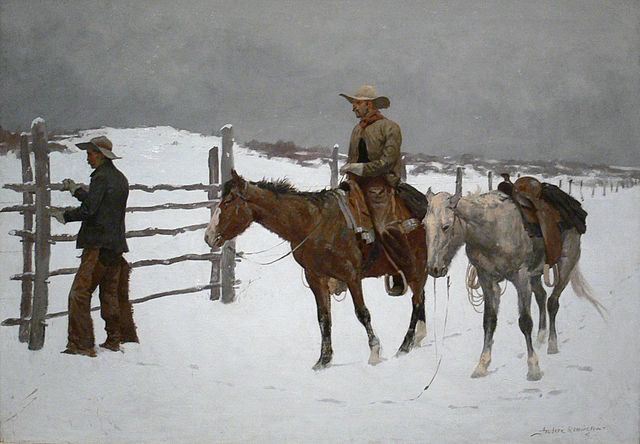A book newly acquired by the Thammasat University Libraries discusses the ongoing world fascination with the American West.

A companion to the literature and culture of the American West edited by Nicolas Witschi explores historic and contemporary cultural expressions of America’s western states. From cowboys to country western music, the cultural legacy of the American West is wide-ranging and influential, not always for the good. The 19th century Gold Rush in California and the experience of Asian Americans, mainly Chinese people who helped to build the railways, are explored. The ever-popular American Western films with stars such as John Wayne are also part of the overall impression made by the Wild West on world culture.
Other approaches.
The TU libraries also own other books about attitudes to a wide open western landscape, and what happens to a country when that landscape is filled with settlers and no wide open spaces remain to be discovered. Such studies as Ark of empire: the American frontier, 1784-1803; Westward expansion: a history of the American frontier; Frontier: American literature and the American West; and Hollywood’s West: the American frontier in film, television, and history offer comparable insights into the subject. When violence, lawlessness, or unruly behavior is also associated with the Wild West, this can have a lasting effect on international sensibilities.
The effect on Thailand.
One unfortunate example of the cultural influence of the American West is probably familiar to most Bangkok residents. Soi Cowboy is a notorious short street filled with go-go bars for farang tourists near Sukhumvit Road, between Sukhumvit Soi 21 (Soi Asoke) and Soi 23. Soi Cowboy was reportedly named after T. G. “Cowboy” Edwards, a retired African-American air force pilot who served during the Vietnam War era. Edwards opened a bar there in the 1970s after marrying a Thai woman, although some internet sources claim that the marriage was not happy or long-lasting. Edwards was called Cowboy because he usually wore a cowboy hat.

This garish Vietnam War-era spirit of using Thailand as a recreation place remains current today. Images of a rebellious outlaw lifestyle are sadly inescapable in many low-level tourist areas in 21st century Thailand. Some of the world unfortunately still sees Thailand as a cowboy-like holiday destination, as unruly as in the days of the American Wild West. Further promoting this limited and deceptive image, the American rock band Sun City Girls recorded a song, Soi Cowboy in 1996 and the famous actor Hugh Grant visited Soi Cowboy in 2003 while shooting the movie Bridget Jones: The Edge of Reason in Thailand. Other more recent international films, such as Bangkok Dangerous and The Hangover Part 2 were also filmed in Soi Cowboy, likewise spreading an image worldwide of Bangkok and Thailand as places of Wild West-like sensibilities. While the latter two films are of low quality, they were nevertheless seen by many millions of farang who get the impression that all of Thailand might be like Soi Cowboy. These filmgoers would no doubt be astonished to learn that there are libraries and universities in Thailand. This sleazy international impression, while false and defamatory, distracts attention from an admirable aspect of the influence of the American West on Thailand.

The country western spirit in Thailand
As Thai music lovers all know, Luk Thung, meaning child or children of the fields, is a popular style of music, short for pleng luk thung (song of a child of the fields). Just as American country western music arose from a rural sensibility, so around the 1930s did Thai musicians start to play a kind of music that would only be given the name Luk Thung in the 1960s. As in American Western music, Luk Thung songs tend to discuss the difficulties of life in the countryside. Even a folklore-style type of yodeling, made famous by America’s singing cowboys of musical films, was adopted by such beloved Thai performers as Ponsri Woranut and Suraphol Sombatcharoen. Fans of Luk Thung are always worried about its survival, just as listeners to American country western music often complain about how older performers in past eras were always better. Still, Luk Thung remains undeniably popular, and last year The Bangkok Post reported that a song Kau Jai Tur Lak Bur Toh (My heart for your phone number) by the Luk Thung singer Ying Lee Sijumpol received over 100 million hits on YouTube.com.

(all images courtesy of Wikimedia Commons).
